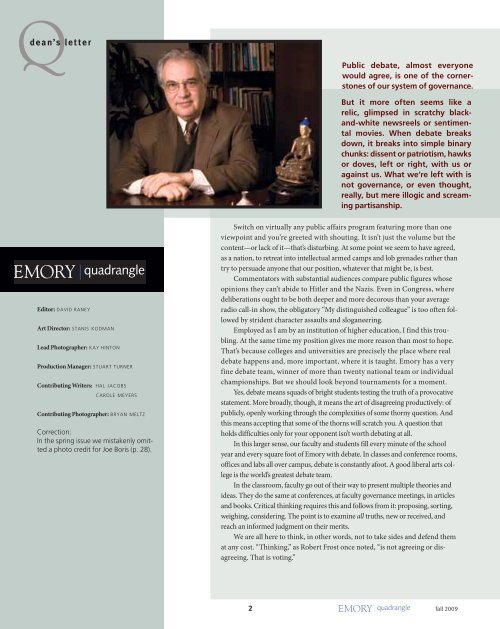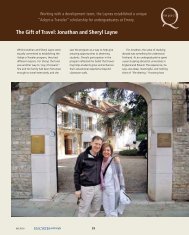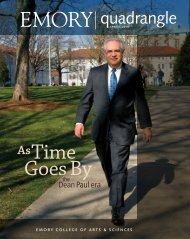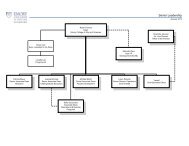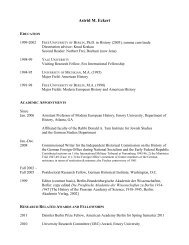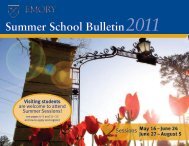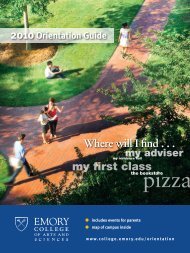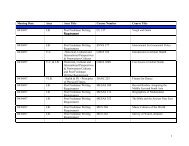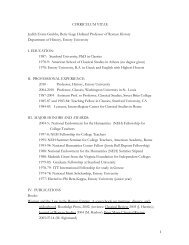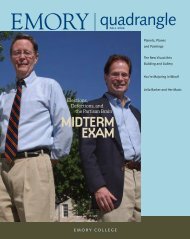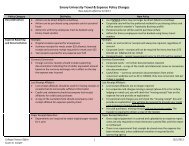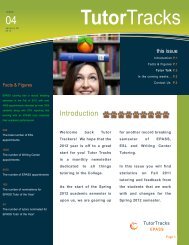quadrangle - Emory College - Emory University
quadrangle - Emory College - Emory University
quadrangle - Emory College - Emory University
- No tags were found...
You also want an ePaper? Increase the reach of your titles
YUMPU automatically turns print PDFs into web optimized ePapers that Google loves.
Public debate, almost everyonewould agree, is one of the cornerstonesof our system of governance.But it more often seems like arelic, glimpsed in scratchy blackand-whitenewsreels or sentimentalmovies. When debate breaksdown, it breaks into simple binarychunks: dissent or patriotism, hawksor doves, left or right, with us oragainst us. What we’re left with isnot governance, or even thought,really, but mere illogic and screamingpartisanship.Editor: DAVID RANEYArt Director: STANIS KODMANLead Photographer: KAY HINTONProduction Manager: STUART TURNERContributing Writers: HAL JACOBSCAROLE MEYERSContributing Photographer: BRYAN MELTZCorrection:In the spring issue we mistakenly omitteda photo credit for Joe Boris (p. 28).Switch on virtually any public affairs program featuring more than oneviewpoint and you’re greeted with shouting. It isn’t just the volume but thecontent—or lack of it—that’s disturbing. At some point we seem to have agreed,as a nation, to retreat into intellectual armed camps and lob grenades rather thantry to persuade anyone that our position, whatever that might be, is best.Commentators with substantial audiences compare public figures whoseopinions they can’t abide to Hitler and the Nazis. Even in Congress, wheredeliberations ought to be both deeper and more decorous than your averageradio call-in show, the obligatory “My distinguished colleague” is too often followedby strident character assaults and sloganeering.Employed as I am by an institution of higher education, I find this troubling.At the same time my position gives me more reason than most to hope.That’s because colleges and universities are precisely the place where realdebate happens and, more important, where it is taught. <strong>Emory</strong> has a veryfine debate team, winner of more than twenty national team or individualchampionships. But we should look beyond tournaments for a moment.Yes, debate means squads of bright students testing the truth of a provocativestatement. More broadly, though, it means the art of disagreeing productively: ofpublicly, openly working through the complexities of some thorny question. Andthis means accepting that some of the thorns will scratch you. A question thatholds difficulties only for your opponent isn’t worth debating at all.In this larger sense, our faculty and students fill every minute of the schoolyear and every square foot of <strong>Emory</strong> with debate. In classes and conference rooms,offices and labs all over campus, debate is constantly afoot. A good liberal arts collegeis the world’s greatest debate team.In the classroom, faculty go out of their way to present multiple theories andideas. They do the same at conferences, at faculty governance meetings, in articlesand books. Critical thinking requires this and follows from it: proposing, sorting,weighing, considering. The point is to examine all truths, new or received, andreach an informed judgment on their merits.We are all here to think, in other words, not to take sides and defend themat any cost. “Thinking,” as Robert Frost once noted, “is not agreeing or disagreeing.That is voting.”2 fall 2009


